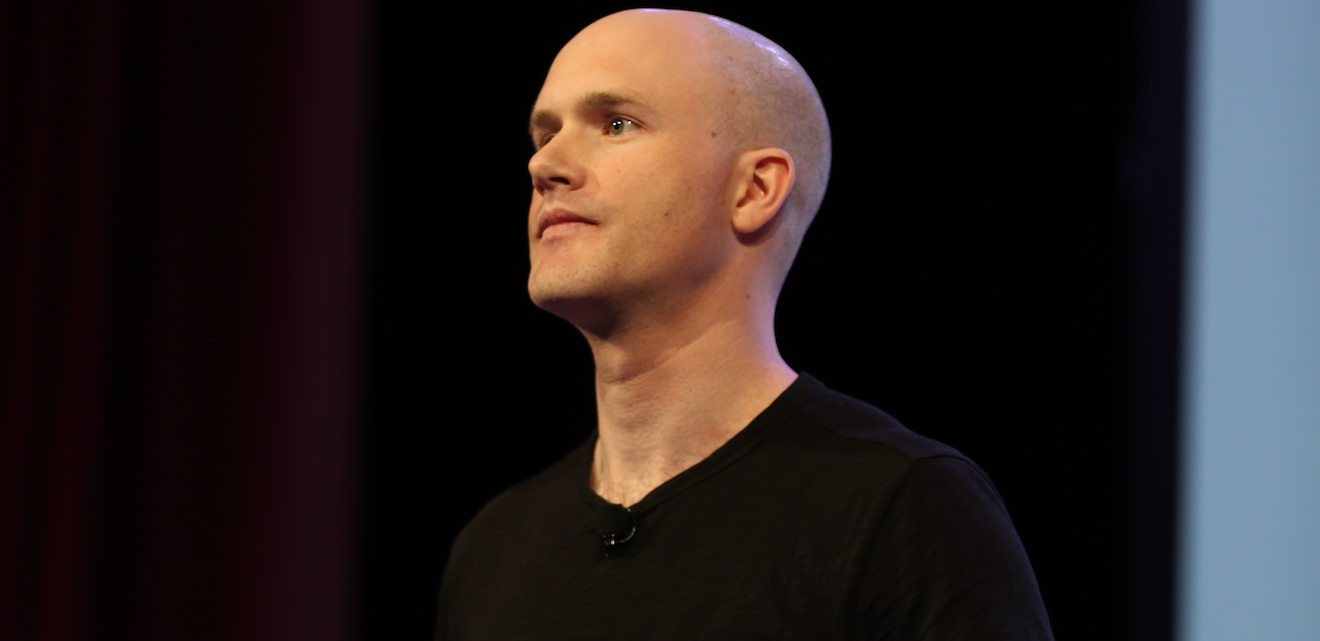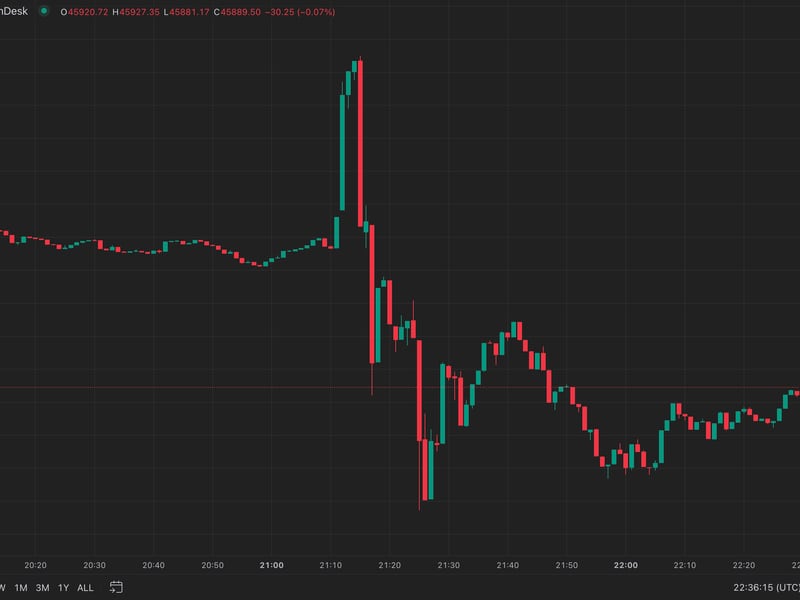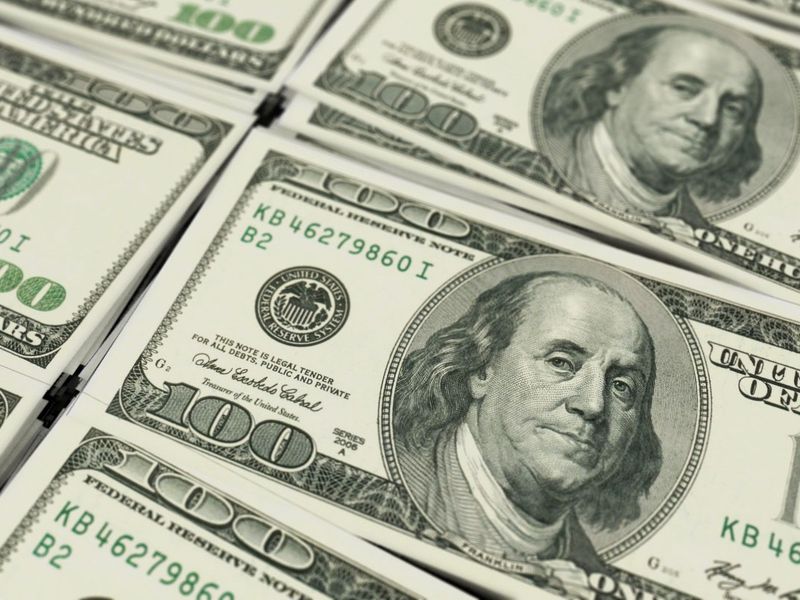Bitcoiners Have Trillions and Trillions of Reasons to Ignore US Election
The outcome of next month’s U.S. presidential election may not matter much for bitcoin’s price: Economic stimulus in the trillions of dollars is likely no matter who wins, bolstering the largest cryptocurrency’s appeal as a hedge against inflation.
President Donald Trump over the past week has reversed his opposition to another big government-spending bill following April’s $2 trillion coronavirus-aid package. He signaled his eagerness to strike a deal with leaders of the opposition Democratic party, who have proposed a $2.2 trillion stimulus bill. According to Axios, he told senior lawmakers in his own Republican party that he wants “a big deal.”
If Trump wins in November, he’s likely to continue supporting stimulus spending or easy monetary policy from the Federal Reserve, given his four-year track record of jawboning the U.S. central bank to cut interest rates whenever signs of weakness appear, while boasting about U.S. jobs growth and stock-market increases. He also could push for a new round of tax cuts.
Trump’s Democratic challenger, former Vice President Joe Biden, has already rolled out his own $5.4 trillion agenda that includes increased budget allocations for education, housing, health care, paid leave and fixing crumbling infrastructure, according to the Wall Street Journal. The Biden campaign has pledged to cancel a substantial portion of Americans’ $1.5 trillion in federal student debt.
Such expenses would come on top of what already seems like an unending sea of red ink: The U.S. government’s budget deficit for the 2020 fiscal year tripled to $3.1 trillion. And economists say the Federal Reserve is likely to keep printing money in coming years to help finance the budget gap.
“Because the economy’s hands are tied and policymaker’s hands are tied, the wiggle room that any party in power is going to have is limited,” said Chris Wallis, chief investment officer of Vaughan Nelson Investment Management, a division of the French financial firm Natixis, told First Mover in a Zoom interview. “There’s no atheists in a foxhole. Nobody is going to worry about deficits.”
Wall Street analysts have debated in recent weeks whether a Trump or Biden victory would be better for stocks. What’s good for bitcoin might be easier to pinpoint, since most digital-asset market analysts say the Federal Reserve’s $3 trillion of freshly printed money this year has helped to push up prices for the largest cryptocurrency. Bitcoin is up 63% year-to-date, versus 9.4% for the Standard & Poor’s 500 Index of U.S. stocks.
Mike Wilson, chief U.S. equity strategist for the Wall Street firm Morgan Stanley, told CNBC on Monday that “no matter who wins the election, by the first quarter we’ll have an additional stimulus that’s probably still required to make sure that the recovery continues.”
Pantheon Macroeconomics’ Ian Shepherdson wrote Monday in a report that the next relief bill isn’t likely to come until early February, but “stimulus is coming, and the longer it is delayed, the bigger it will be,” and the more likely the Fed finances the extra costs.
“It almost seems like the market doesn’t really care who wins at all,” Mati Greenspan, founder of the foreign-exchange and cryptocurrency research firm Quantum Economics, wrote last week in a note to clients. “All investors care about is stimulus, which both parties seem willing to provide amply.”
There’s a long way to go before the economy recovers. Some 12.6 million Americans were unemployed at the end of September, more than double the number early this year, prior to the pandemic. And now some health experts are warning of a new wave of coronavirus cases, which could dampen consumer confidence or result in new lockdown measures that might crimp output.
Any costs to jolt the economy out of its doldrums might be separate from the ever-growing list of investments needed to address nagging environmental and social concerns.
According to a report last month by the Climate-Related Market Risk Subcommittee of the U.S. Commodity Futures Trading Commission, some $110 trillion of investments could be needed by 2050 to wean energy production off of carbon-intensive fuels. That works out to about $3.7 trillion a year.
There’s also the prospect of costs to reduce racial injustices. Aside from the basic unfairness of practices like redlining, voter suppression and profiling by police, institutionalized racism hurts U.S. economic potential by limiting opportunities “for a large number of Americans,” Federal Reserve Bank of Atlanta President Raphael Bostic argued in a speech last month. A study cited by Black Entertainment Television founder Robert Johnson put the estimated cost of slavery reparations at $14 trillion.
Federal Reserve Chair Jerome Powell has made no secret of his stance that the government needs to ramp up spending to fuel the recovery from the coronavirus-induced recession. In a speech last week, Powell said that without more aid, households and businesses would experience rising “insolvencies,” which could harm “the productive capacity of the economy.”
Fitch, the bond-rating firm, wrote Monday in a report that voters consider the economy to be the top issue in the 2020 election, and that a stimulus package of about $1 trillion or more is likely whoever wins.
If the federal government doesn’t ply the economy with trillions of dollars of spending, traditional stock and bond markets could quickly sell off. And such a dry-up in market “liquidity” might force the Fed to increase its monthly asset purchases or provide new forms of emergency lending. Currently, the Fed is buying $120 billion of U.S. Treasury bonds and mortgage securities a month, a pace that works out to $1.44 trillion a year.
“This cycle has needed central bank liquidity support on an unprecedented scale, and will need substantial additional liquidity support, if for whatever reason the global recovery is knocked off course,” Deutsche Bank Chief International Strategist Alan Ruskin wrote last week in a report.
The upshot? For voters, it’s a choice between Trump and Biden. But bitcoin might be a winner either way.









